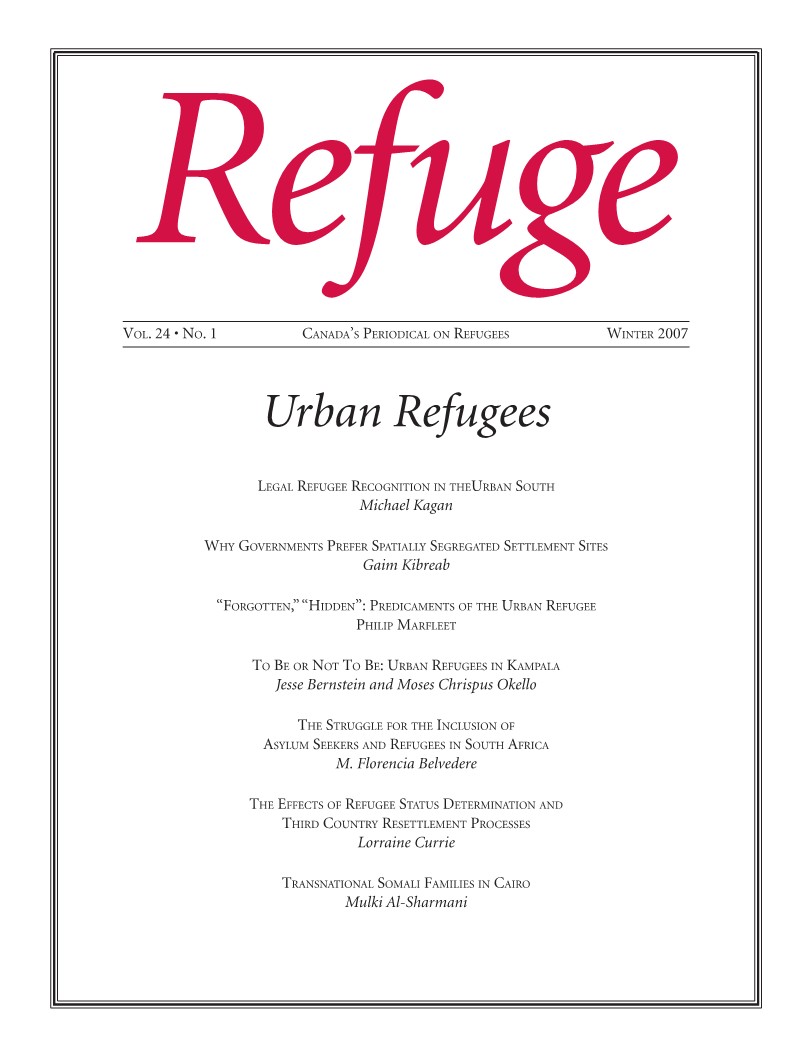“Who Can Be Added”: The Effects of Refugee Status Determination and Third Country Resettlement Processes on the Marriage Strategies, Rites, and Customs of the Southern Sudanese in Cairo
DOI:
https://doi.org/10.25071/1920-7336.21369Keywords:
Cairo, Egypt, Sudanese refugees, urban refugees, resettlement, marriage, gender, refugee status determinationAbstract
This study, based on ethnographic research, examines how refugee status determination and third country resettlement processes influence the marriage practices of the southern Sudanese refugee community in Cairo. The study showed that because of their inability to attain socio-economic integration into the host community combined with the growing insecurity of the environment of Cairo for refugees, many southern Sudanese have had to reevaluate their traditional marriage practices and family values to qualify for resettlement and escape to a better life. For example, the expectation of resettlement can directly affect courtship strategies, dowry payments, and couples’ decisions regarding having children. Guidelines of UNHCR and/or resettlement countries play a considerable role in these decisions, as do rumours about marriage certification and difficulty in finding suitable partners in the West. In some instances, marriage becomes a business arrangement to secure resettlement. Refugee status denial sometimes has a negative impact on marriage, with spouses blaming each other for performing badly at the status determination interview, leading in some cases to violence and divorce. Sudanese youth with denied refugee status have particular difficulties as their hopes for a brighter future are dashed and with it their prospects of a normal family life.
Metrics
Downloads
Published
How to Cite
Issue
Section
License
Copyright (c) 2007 Lorraine Currie

This work is licensed under a Creative Commons Attribution-NonCommercial 4.0 International License.
Refuge authors retain the copyright over their work, and license it to the general public under the Creative Commons Attribution-Non Commercial License International (CC BY-NC 4.0). This license allows for non-commercial use, reproduction and adaption of the material in any medium or format, with proper attribution. For general information on Creative Commons licences, visit the Creative Commons site. For the CC BY-NC 4.0 license, review the human readable summary.







